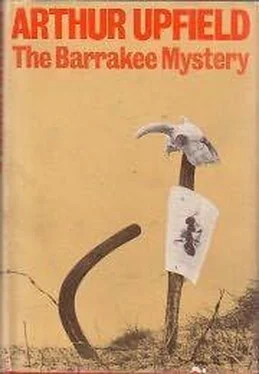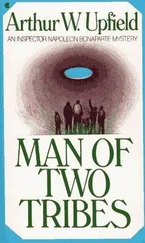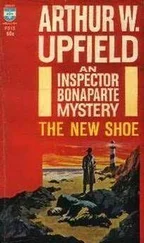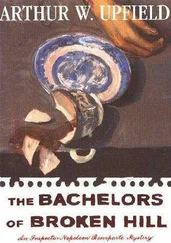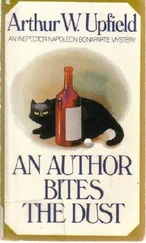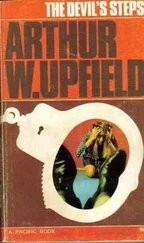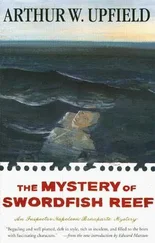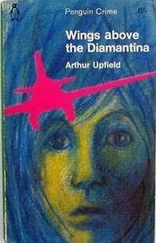Arthur Upfield - The Barrakee Mystery
Здесь есть возможность читать онлайн «Arthur Upfield - The Barrakee Mystery» весь текст электронной книги совершенно бесплатно (целиком полную версию без сокращений). В некоторых случаях можно слушать аудио, скачать через торрент в формате fb2 и присутствует краткое содержание. Жанр: Классический детектив, на английском языке. Описание произведения, (предисловие) а так же отзывы посетителей доступны на портале библиотеки ЛибКат.
- Название:The Barrakee Mystery
- Автор:
- Жанр:
- Год:неизвестен
- ISBN:нет данных
- Рейтинг книги:4 / 5. Голосов: 1
-
Избранное:Добавить в избранное
- Отзывы:
-
Ваша оценка:
- 80
- 1
- 2
- 3
- 4
- 5
The Barrakee Mystery: краткое содержание, описание и аннотация
Предлагаем к чтению аннотацию, описание, краткое содержание или предисловие (зависит от того, что написал сам автор книги «The Barrakee Mystery»). Если вы не нашли необходимую информацию о книге — напишите в комментариях, мы постараемся отыскать её.
The Barrakee Mystery — читать онлайн бесплатно полную книгу (весь текст) целиком
Ниже представлен текст книги, разбитый по страницам. Система сохранения места последней прочитанной страницы, позволяет с удобством читать онлайн бесплатно книгу «The Barrakee Mystery», без необходимости каждый раз заново искать на чём Вы остановились. Поставьте закладку, и сможете в любой момент перейти на страницу, на которой закончили чтение.
Интервал:
Закладка:
“What, Ralph, have you just awoken? That is the first time you’ve spoken since we started.”
“The wise are always silent,” he said, with a smile, looking back at her. “As a matter of fact, I have been thinking.”
“Oh-of what, if I am not rude?”
“You are, but I’ll tell you,” he said. “Peculiarly enough I was thinking of Nellie Wanting, and I arrived at the stupendous conclusion that she would be a really pretty girl if she was white.”
Kate Flinders laughed deliriously. Dugdale suddenly smiled. Thornton was absorbed in watching the country, i.e. the state of the sheep feed.
“I believe, Ralph,” she said, “that you are falling in love with little Nellie Wanting, the lady of colour.”
“You would, doubtless,” he replied dryly, “be much astonished if I did.”
Chapter Nine
The Washaways
TEN MILES west of Cattle Tank they reached the Washaways. It had been a standing joke for years that Thornton repeatedly stated he would have abridge, or series of bridges across this maze of creeks, winding in and out among themselves like the strands of a rope. The bridges, however, never materialized.
On Barrakee these creeks, divided by steep box-lined banks, ran from north to south, and in flood-time carried water from the Paroo to the Darling, a kind of overflow. The Paroo itself, when it does run water, empties it into the Darling, just above Wilcannia.
The Barrakee road to Thurlow Lake crossed five creeks, forming the Washaways at that point, in three-quarters of a mile, and it was on the west bank of the last of them that Thornton directed Dugdale to pull into the shade of a great box-tree for lunch.
Kate Flinders always enjoyed these alfresco lunches. While she set out the food on the car’s running-board to baffle the myriads of ants, Dugdale gathered the wood for a fire, and Ralph filled the billy from one of the two canvas water-bags hanging from the side of the car.
Dugdale invariably arrogated to himself the task of boiling the billy, and whilst he was thus engaged the squatter announced that that morning the annual Land Lottery was opened.
As a sop to the insatiable hunger for land in the western half of New South Wales, the Government “resumes” a dozen or so small areas of land every year from the big pastoral leases, and these areas, commonly known as “blocks”, are offered to the public. For every block thus thrown open there are up to a hundred applicants. A Land Board, consisting of two or three highly-salaried gentlemen, eventually visits the bush towns and hears the applicant’s qualifications. Since no special qualifications are demanded and since the qualifications of past successful applicants are by no means uniform, the necessary qualifications for success are purely a matter of guesswork to the bush public.
Hence this annual allotment of blocks is humorously called, in many places, the “Great Land Lottery”. To Frank Dugdale, any one of these blocks would enable him, in a few years, to ask Kate to marry him. Success in the Lottery would be infinitely quicker than waiting weary years for amanagership.
“Do you know any of the blocks, Mr Thornton?” he asked promptly.
“Yes. One of them is Daly’s Yards paddock.”
Dugdale’s eyes gleamed.
Daly’s Yards was a large paddock on Tindale Station, and joined the west boundary of Barrakee. In area it was some 25,000 acres, and, whilst this does not constitute a large area for Australia, everyone knew that Daly’s Yards was well scrubbed, and that there was a very fine surface dam in the west, and a good well in the east. The rent would be about thirty pounds perannum, and the value of the water supply-to be paid by arrangement to the owners of Tindale-would be something like six hundred pounds. Ownership of such a lease meant independence in less than ten years.
“There will be a lot in for that block,” murmured Dugdale.
“Are you going to put in for it, Dug?”
The sub-overseer tossed a handful of tea into the boiling water, and allowed it to boil for half a minute, before taking the billy off the fire.
“I am, Ralph,” he replied grimly. “It will be the fifth time I’ve put in for the Lottery, and I might win a block. What other blocks are out, Mr Thornton?”
The squatter mentioned a few he had memorized from theGovernment Gazette announcement.
“You’d find it fairly lonely living on a block by yourself, Dug,” he suggested.
“For a start, yes,” Dugdale agreed, stirring the tea to induce the leaves to sink. “But if I got Daly’s Yards it wouldn’t be long beforeI had a house built. And with a house I might induce a woman to marry me.”
“There is that possibility, I admit,” agreed the squatter dryly.
“If I were extra special nice, would you propose to me, Dug?”
He looked up into the smiling face. He, too, was smiling, but his eyes did not smile. She remembered his eyes long afterwards.
“If I were lucky enough to win a block, I would not be lucky enough to win you,” he told her, laughing. “It would be most improbable that one would win two such prizes in a lifetime.”
“But isn’t it considered the thing to do, if one wins a block, to appreciate one’s stupendous luck by heading a syndicate of one’s friends to invest in Tattersall’s Melbourne Cup Sweep?” asked Ralph.
“It is the custom.”
“Then that shows belief in a run of luck,” the young man pointed out. “You’d better not be extra special nice, Katie, or you’ll find yourself married.”
“If you come trying to steal my niece, Dug, you and I will engage in debate,” said the squatter with assumed gravity. “When you become a pastoralist, you’ll have no time for anything but to keep paying the taxes.”
“I’ll pay them all right.”
“I know you will. The tax-gatherers will see to that. But you’ll be kept busy, I assure you. Australia, with a population less than that of London, can’t keep up European appearances on the lavish scale of a sixty-million people without taxing us, our children, and our children’s children, to the bone.”
“Bother politics,” interrupted Kate irreverently. “Here, help yourselves to these sandwiches, and let’s talk about Sir Walter Thorley.”
“That scoundrel,” the squatter shouted.
“That absent owner of half Australia!” ejaculated Dugdale.
The effect of that name on the two sheepmen was astonishing.
“You have poured petrol on the fire now, Kate,” laughed Ralph.
“I think he is a lovely man,” added Kate daringly, finishing her petrol.
Thornton choked. Dugdale bit savagely into his sandwich. Distaste for Sir Walter Thorley was common to both, but their reasons were different.
Dugdale, a member of the great homeless, land-hungry army, detested not so much the person as the combine whose head Sir Walter was. This combine had bought up station after station, so that now it owned hundreds and hundreds of miles of Government landed property. It dismissed the employees, sold the sheep, allowed the buildings and fences to rot, and stocked each station that successively fell under what was called the “Blight”, with cattle, in charge of one poorly paid white man and half a dozen blacks.
Mr Thornton and his associate squatters, the majority of whom elected to reside anywhere but on their properties, were incensed against the Birthday Knight, because he cynically ignored the clause in each of his leases which specified that the holder must do all possible to keep down the wild dogs. Sir Walter’s cattle stations were notoriously among the finest breeding grounds of the sheepman’s deadliest enemy.
By no stretch of imagination could Kate Flinders be accused of hoydenishness. She was, however, the kind of girl who regards all men as wilful boys, and sometimes she took keen delight in rousing them. Once she had told the Little Lady:
Читать дальшеИнтервал:
Закладка:
Похожие книги на «The Barrakee Mystery»
Представляем Вашему вниманию похожие книги на «The Barrakee Mystery» списком для выбора. Мы отобрали схожую по названию и смыслу литературу в надежде предоставить читателям больше вариантов отыскать новые, интересные, ещё непрочитанные произведения.
Обсуждение, отзывы о книге «The Barrakee Mystery» и просто собственные мнения читателей. Оставьте ваши комментарии, напишите, что Вы думаете о произведении, его смысле или главных героях. Укажите что конкретно понравилось, а что нет, и почему Вы так считаете.
